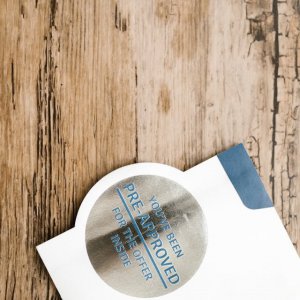Bankrupt? - The Implications of a Bankruptcy Order - The restrictions on a bankrupt
What are the implications of a bankruptcy order?
The implications of a bankruptcy order are specific to the individual who has been made bankrupt and do not apply to that person's husband, wife or life partner.
It is a common misconception that you will lose everything you own in a bankruptcy, will not be able to work and can not even hold a bank account. This is not the case.
On the making of a bankruptcy order, all assets of the bankrupt, with important exceptions, then vest (belong to) in the Official Receiver. Those assets must be realised by the Official Receiver or Trustee for the benefit of your creditors.
For most people the bankruptcy is ended one year after the date on which the bankruptcy order is made. This means that the "restrictions" referred to below cease to have effect after the end of the bankruptcy.
Restrictions that apply in a bankruptcy (The implications of a bankruptcy order)
- You should be aware that any windfall/inheritance received prior to or during the life of the bankruptcy (usually one year) , must be paid to the Official Receiver/Trustee in bankruptcy to contribute towards or satisfy the debts owed to your creditors. Should the windfall/inheritance exceed the amount due to your creditors, then the balance will be returned to you by the Trustee in bankruptcy.
- The Trustee must realise all assets (with important exceptions) that existed as at the date that the bankruptcy order was made (Section 283 of The Insolvency Act 1986). For further information on these assets, see the House, Car, Furniture, Job, income/expenditure sections to find out which are the excepted assets. For details of Section 283 click on the link.
- You will be required to complete six monthly income and expenditure statements to determine whether you have any surplus income that could be paid to the Official Receiver in part satisfaction of your debts. This is called an income payments order. For full details on this procedure, see the income/expenditure section.
- You are not permitted to obtain credit during the life of the bankruptcy over and above the sum of £500 without informing the lender that you are bankrupt. (This includes not only money, but ordering goods without asking for credit and then failing to pay for them when they are delivered). Should the lender then wish to still deal with you (having advised them that you are an undischarged bankrupt) , you are within your rights to accept any offer of credit made.
- Should you trade as a sole trader, you should be aware of the restrictions that will be imposed as a result of a bankruptcy order being made. Subsequent to a bankruptcy order being made, there is nothing to stop you from continuing to trade in the capacity of a sole trader. You must, however, ensure that your invoices, letterheads, etc carry the name in which you were made bankrupt, i.e. your personal name and any former trading name. This is to ensure that creditors can identify you as a potential credit risk. Although it is permitted for you to use a trading name, you must ensure that the Official Receiver/Trustee in bankruptcy, has expressly given you permission to use such a name. You must, however, ensure that your personal name is dominantly shown on all trading paperwork.
e.g Jacob James trading as Somewhere Over The Rainbow.
- As a bankrupt, it is a criminal offence to be concerned (directly or indirectly) in promoting, forming or managing a limited company or acting as a company director without the courts permission, whether formally appointed as a director or not. Should you be a director of a limited company you must resign office immediately. Should you be a shareholder of the company at the time that the bankruptcy order was made, your shares in that company will automatically vest in your Trustee in Bankruptcy as an asset of the bankruptcy estate.
If however the Official Receiver draws the conclusion that there was some culpability by the bankrupt (such as large sums of money being unaccounted for) he may apply for a Bankruptcy Restrictions Order (BRO) - You can however, by agreement, instead enter into a Bankruptcy Restriction Undertaking (BRU). Under a BRU or a BRO the period for which the bankruptcy restrictions listed above apply can be extended by that Order or Undertaking to a period pf between 2 and 15 years.
If you are bankrupt or have had a bankruptcy petition delivered to you contact Chris Parkman at Purnells Licenced Insolvency Practitioners for a FREE INITIAL MEETING. We can advise on bankruptcy restrictions, bankruptcy restriction orders, bankruptcy restriction orders and all other insolvency related matters including ways of avoiding the making of a bankruptcy order.
Would you like us to give you a call?
Fill in the form and we'll give you a call as soon as we can to discuss your needs in a free initial consultation with a Licensed Insolvency Practitioner. Alternatively give us a call on 01326 340579 if there is an urgency to your needs.
The information provided will be used solely to contact you and any information you provide will be held in accordance with our firm's privacy policy, and not used for marketing purposes.






